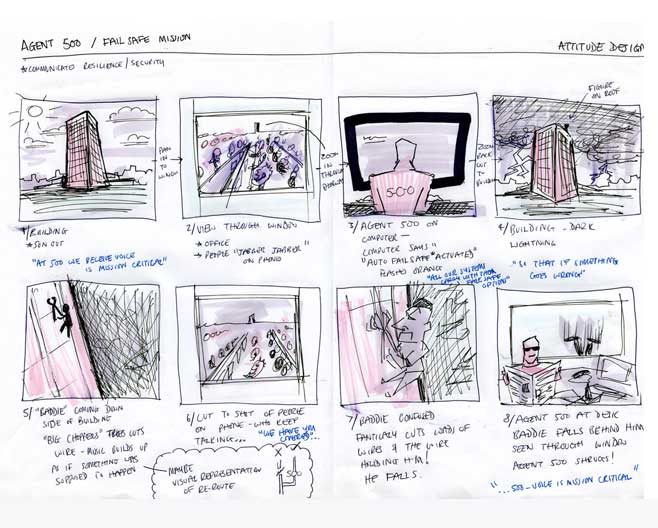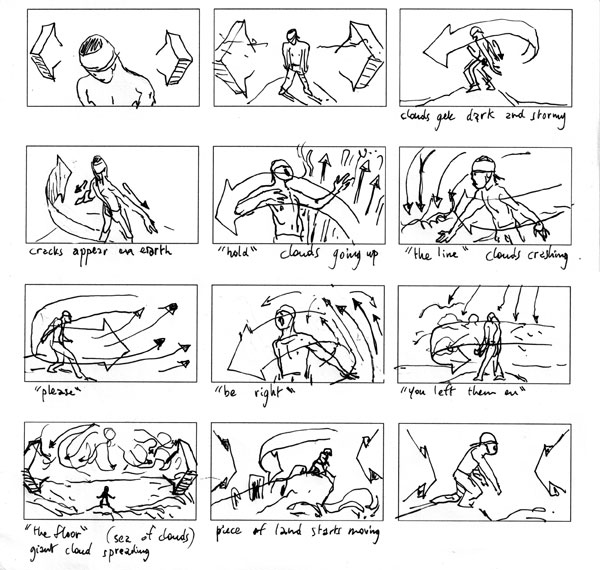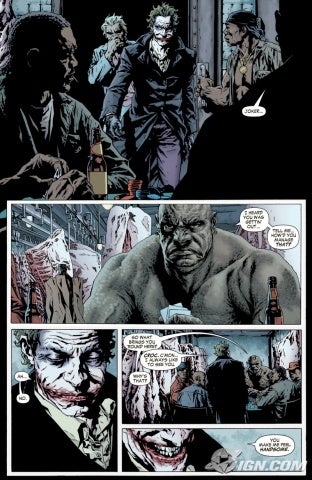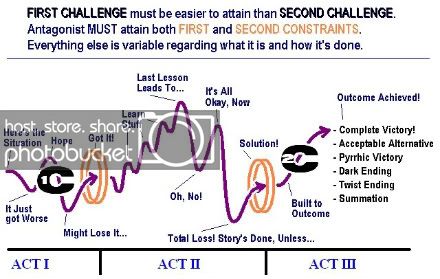I strongly urge you to not avoid it. Any set I've been on without storyboards it's been obvious other pre-planning has been avoided as well.
Seconded.
Here's the deal, I acknowledge and respect that there are all sorts of different "levels" of filmmaker professionalism.
GIGO = Garbage In. Garbage Out.
INESCAPABLY, the more effort that is put into the craft the better the product will become.
As a nube rook myself it's clever and perhaps wise to "just tinker" with some ideas, see what comes natural, and get some silly sh!t out of our system.
It allows us to just dismiss cutting criticism as "it was an experimental piece"!
Fine.
But at some point each of us begins developing this nagging notion that if I use better ingredients I can make a better pizza... er... filmmaking product.
Intro increasing levels of STRUCTURE to our former off the cuff approach.
Nebulous intuitive story vomiting becomes classified and quantified with various adherence and divergence from established story structures, eg monomyth, three act, Syd Field, Blake Snyder et al.
You begin to deliberately draping your story craft over structure, such as this three act I've fabricated.
Handheld shakey cam in SD goes to docu cam and tripod pans in HD.
Then we DIY sliders, dolly tracks, and shoulder rigs.
Start building a prop inventory.
Upgrade our editing software and hardware suite.
Find an audio guy with a boom pole.
And then you know you've really started some real sh!t, especially when you're now asking other people to invest time and attention into your sophomore level hobby.
Story boarding not only allows you speed up your 100%-in-your-head off the cuff beyond experimental craft, it forces you into a professional mentality of respecting the time others CHOOSE/ELECT to spend with you rather than spend or invest it elsewhere.
So, maybe for a thirty second bit with you and one other cohort it doesn't make sense to spend time story boarding.
But if you have three peeps performing multiple roles (with mutiple dedications and skill levels) for a >three minute piece (and you know you're gonna spend at least an hour
on set for every eventual thirty seconds of final product)... then you might wanna consider scratching out some blocks to communicate to everyone "Hey, let's not dick around and get this sh!t bagged and tagged ASAP, purty please"?
Guys that like to shoot sh!t may become soldiers that provide a scary force to reckon with.
Some soldiers become leaders of others to increase force strength through organization of mutual support.
Some soldiers become logistics experts planning howTH is everyone going to get what they need to do their job most efficiently.
Same thing.
It's part of the process.
Like wearing a monkey suit... er... suit & tie to work. It doesn't make the work go better, it just forces us to adopt a certain mentality of professionalism that both benefits us and allows us to measure and gauge the professionalism of others, subordinate, (supposed) peer or senior.











